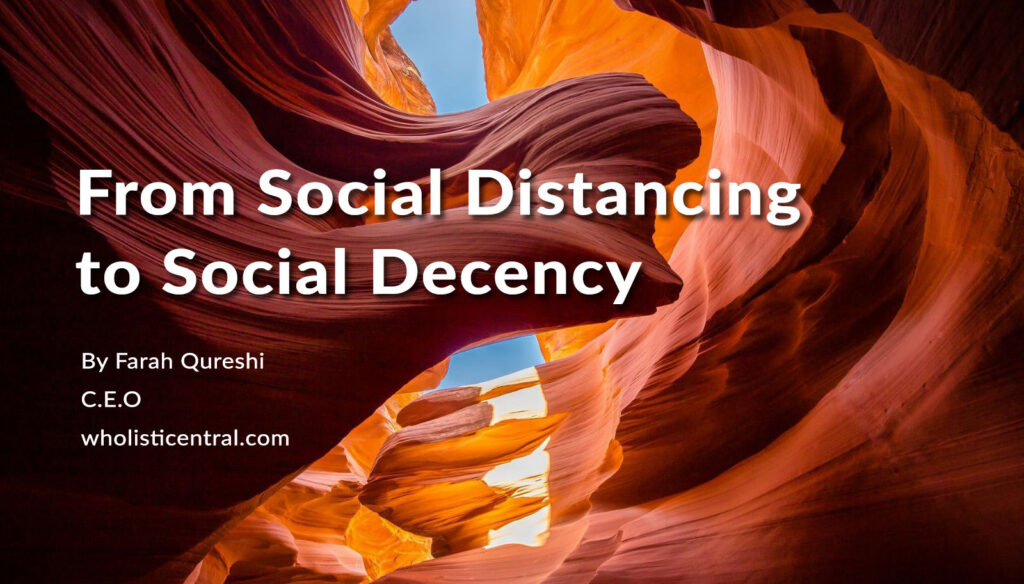
Social decency refers to prescribed behavior of “refinement, good manners, morals, decorum, decency, humaneness”. While the interpretation of the scope and particulars of Social Decency may vary among different cultures, common among these interpretations is regard for personal standing through the observation of certain codes of behavior, to exhibit Moral and manners would be to show “proper discrimination of correct order, behavior and taste.
Social Decency has been historically preached by all major religions, cultures and beliefs especially Abrahamic beliefs as its foundation. However, the modern era influenced by the remarkable progress of industrial revolution gave rise to materialism and mass consumerism which has dangerously distanced human beings from numerous Social Decency elements in the name of new norms of individuality, freedom of action and speech. The ultimate result is irreversible and has permanently damaged the traditional human and humane values.
The wisdom of Social distancing applied in times of COVID 19, though for the fear for life, but as a result, has achieved what apparently many codes of ethics either could not or constantly struggle for. Successfully promoting social distancing mainly aims to prevent masses from possible disease, distress and suffering have multiple pronged benefits. It has us at crossroads to thinking about how isolation is held in high esteem for personal spiritual and moral growth. The saying of Prophet Mohammad (PBUH) profoundly reflects on the importance of choosing solitude over socializing or vice versa.
“It is better to sit alone than in company with the bad influence; and it is better still to sit with good than to be alone”.
“It is better to sit alone than in company with the bad influence; and it is better still to sit with good than to be alone”.
That was the way of the last Prophet (PBUH) and the Prophets before him especially during the times of tribulations for the fear of corrupting one’s beliefs.
Thinking conscientiously as a society for the betterment of yourself and others is the key to a healthy moral, ethical and spiritual life commonly known as Social Decency.
-Distancing from worrying to cultivating decency into difficult situations.
-Distancing from overindulgence to showing decency while flaunting your excesses when a great part of society suffered provision losses.
-Distancing from self-glorification and showing decency to be humble and lucky recipients of blessings.
-Distancing from prying into people’s personal matters to practicing decency into correcting oneself.
-Distancing from pretence to decency into genuinely being thoughtful and considerate.
-Distancing from being talkative to limiting one’s speech so to protect ourselves and others from the dangers of our loose tongue.
-Distancing from arguments and imposing our opinion of others to teaching decency in to giving up bad persuasion skills and putting others down.
-Distancing from Moral and physical filth and extending decency to culminate evil assumptions through moral and physical hygiene.
-Distancing from ‘me first’ to being decent and promoting ‘social good’ in creating convenience for others, being fair, respectful and caring from family to strangers.
-Distancing from ‘old and familiar’ into redirecting into new and improved habits.
Social distancing is all but one crucial element of social decency.




